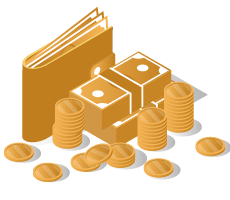Renting vs. Buying in Australia
Deciding between renting or buying a home is one of the most significant financial and lifestyle decisions Australians face. Both options come with distinct advantages and challenges, and the right choice depends on factors like your financial situation, lifestyle preferences, future goals, and plans for stability or flexibility. Whether you’re a first-time homebuyer, renter, or investor, understanding the nuances of each option is essential. This guide explores the key differences, benefits, and risks associated with renting and buying in Australia to help you make the best decision for your circumstances.
Financial Considerations
When deciding between renting and buying, consider both upfront and ongoing costs. Renting typically has lower initial expenses but doesn’t build equity. Buying a home involves larger upfront costs like deposits and stamp duty but offers long-term investment potential and the opportunity to build wealth through property appreciation.


Need to connect your new home to electricity and gas?
Discover the latest offers and get connected!
Upfront Costs
Renting requires a bond (security deposit) and possibly the first month’s rent upfront, which is generally much more affordable than buying. On the other hand, buying a home comes with significant expenses, including:
- Deposit: Usually 10–20% of the property’s value.
- Stamp Duty: A tax on property purchases that varies by state and property price.
- Lender’s Mortgage Insurance (LMI): If your deposit is below 20%, you may need to pay LMI.
- Legal Fees: Costs associated with conveyancing and legal paperwork.
Ongoing Costs
- Renting: Monthly rent payments are typically the only ongoing cost for renters, though utilities and optional renters’ insurance may apply.
- Buying: In addition to mortgage repayments, homeowners must budget for property taxes, home insurance, maintenance, and potential repairs.

Affordability vs. Long-Term Savings
Renting may feel more affordable in the short term, especially without large upfront costs. However, buying often becomes more cost-effective in the long term as homeowners build equity. If your mortgage is less than local rent prices, buying can help you save more over time.
Long-Term Investment Potential
Buying a home is often seen as a sound financial investment because Australian property values generally increase over time, particularly in major cities like Sydney, Melbourne, and Brisbane. As property prices appreciate, homeowners build wealth and gain financial security. Renting, by contrast, doesn’t provide any return on investment, as rent payments are non-refundable.
That said, buying is not without risks. Property values can fluctuate, and homeowners may lose money if the market declines or if they’re forced to sell during a downturn. Renters, however, remain unaffected by such market changes.
Lifestyle and Flexibility
Renting provides mobility and flexibility, ideal for those with changing circumstances or career moves. It’s easier to relocate and try new neighborhoods without the commitment of homeownership. Buying, however, offers stability and the freedom to personalize your living space, making it a great option for those seeking long-term roots.

Renting Flexibility
One of the main advantages of renting is the flexibility to move quickly. This is ideal for:
- Young Professionals: Those who may need to relocate for career opportunities.
- Students: Those attending universities far from home.
- Uncertain Plans: Anyone unsure about their long-term location or lifestyle preferences.
Renting also allows you to try different neighborhoods or types of housing before making a long-term commitment.
Stability with Homeownership
Buying a home provides stability and control over your living space. Homeowners are free from the risk of eviction and rent increases. You can also personalize your home to suit your style, whether through renovations or major landscaping projects.
However, homeownership ties you to a location for a longer period, which may be limiting if you need to move for work or other lifestyle reasons.
Renting vs. Buying: The Pros and Cons
Renting comes with lower upfront costs, no responsibility for maintenance, and the freedom to move. However, it doesn’t build equity or provide a financial return. Buying a home can lead to wealth-building and stability, but it requires significant upfront investment and ongoing maintenance costs. Your decision depends on your financial goals and lifestyle needs.
Pros of Renting
- Lower Upfront Costs: Requires a bond and initial rent payment but avoids deposits, stamp duty, and legal fees.
- No Maintenance Responsibility: The landlord typically handles repairs and maintenance.
- Flexibility: You can move easily if your needs change.
- No Market Risk: You aren’t affected by property value fluctuations.
Cons of Renting
- No Equity Building: Rent payments don’t contribute to ownership or wealth-building.
- Rent Increases: Rent can rise over time, making it harder to budget.
- Limited Customization: Landlords often restrict renovations or improvements.
Pros of Buying
- Equity Building: Mortgage payments contribute to homeownership, which can be leveraged for future financial needs.
- Stability: You’re not subject to rent hikes or landlord decisions.
- Freedom to Customize: You have full control over renovations and improvements.
- Capital Gains: Property appreciation can build wealth over time.
Cons of Buying
- High Upfront Costs: Deposit, stamp duty, and legal fees can be a barrier for many.
- Maintenance and Repairs: Homeowners bear all costs for property upkeep.
- Market Risks: Property values may decline, impacting the value of your investment.
- Reduced Mobility: Selling a home takes time and may be challenging in a slow market.

New House? – Get set up now!
Set up utilities at your new home in just one click!
First-Time Buyers: Overcoming Challenges
First-time homebuyers in Australia often face hurdles like saving for a deposit, navigating the mortgage application process, and managing associated costs. Government grants and incentives, such as the First Home Owner Grant (FHOG), may provide financial assistance. However, buying still requires careful planning and a thorough understanding of long-term commitments.
Renting vs. Buying: Apartments vs. Houses
Apartments
Renting an apartment is often more affordable, especially in major cities. It’s a great option for those who want to enjoy city life without the long-term financial commitment of buying. However, buying an apartment can be a smart investment if you’re ready to settle down and want to build equity.
Houses
Houses typically offer more space and outdoor areas, which can be appealing for families. However, they come with higher purchase prices and ongoing maintenance costs. Renting a house provides flexibility without the burden of homeownership but won’t help you build equity.
Renting and Investing
Some Australians choose to rent and invest in other assets instead of buying a home. This strategy allows for mobility while still participating in market growth through property investment or other vehicles like stocks and bonds. This approach can also provide tax benefits for investors.

Should you Rent or Buy?
The decision to rent or buy in Australia depends on your financial circumstances, lifestyle preferences, and long-term goals. Renting offers flexibility, mobility, and lower upfront costs, making it attractive for many. Buying provides stability, potential wealth-building through equity, and the freedom to customize your space. Whether you’re a first-time buyer or long-term renter, carefully weighing the pros and cons of each option will help you make an informed decision that aligns with your future plans.
Frequently Asked Questions
What are the financial considerations when choosing to rent or buy?
Renting typically involves lower upfront costs like a bond and first month’s rent, but doesn’t build equity. Buying requires larger upfront expenses including a deposit (10–20%), stamp duty, lender’s mortgage insurance (if deposit is under 20%), and legal fees, but offers long-term investment potential.
What are the pros and cons of renting versus buying?
Renting offers flexibility, lower upfront costs, and freedom from maintenance responsibilities but does not build equity and rent may increase. Buying builds equity, provides stability and freedom to personalize the home but comes with high upfront costs, ongoing maintenance, market risks, and reduced mobility.
How does affordability compare between renting and buying?
Renting may feel more affordable short-term due to lower initial costs. However, over the long-term, buying often becomes more cost-effective by building equity especially when mortgage repayments are less than comparable rent prices.
What lifestyle factors affect the renting vs. buying decision?
Renting offers mobility and is ideal for those with uncertain or changing locations and lifestyle preferences. Buying provides housing stability, control over your living space, and is preferable if you plan to settle long-term.
What should first-time buyers consider?
First-time buyers often face challenges saving a deposit and navigating costs. Government grants and schemes like the First Home Owner Grant can assist, but thorough planning and understanding of commitments is crucial.
Are there differences between renting/buying apartments vs houses?
Apartments generally have lower costs and are popular for city living, with renting being more affordable. Houses offer more space but at higher purchase prices and maintenance costs; renting houses offers flexibility but no equity building.
Can renting and investing be combined?
Some choose to rent while investing in other assets, like property or stocks, to combine mobility with wealth-building. This strategy can provide tax benefits and diversified growth but requires careful financial planning.

